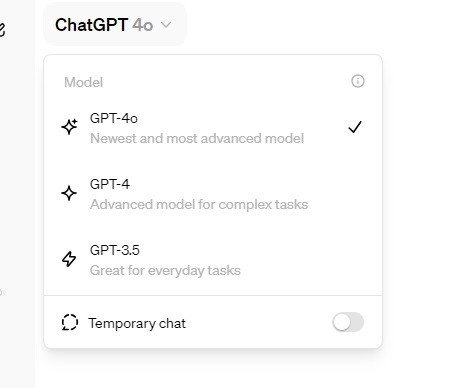OpenAI has unveiled its latest large language model, GPT-4o. This new iteration of the technology promises to make ChatGPT smarter, more versatile, and accessible to a broader audience. The announcement, made during a live demonstration at OpenAI's San Francisco headquarters, highlighted the model's ability to turn ChatGPT into a highly interactive digital personal assistant.
One of the standout features of GPT-4o is its capability to engage in real-time spoken conversations, a leap towards more natural and intuitive interactions with AI. The model also boasts multimodal abilities, allowing it to interpret and generate responses based on text and visual inputs such as screenshots, photos, documents, and charts. This combination of voice and vision sets GPT-4o apart from its predecessors and competitors, bringing a more holistic and interactive AI experience to users.
Another significant enhancement in GPT-4o is its memory capability. This allows ChatGPT to learn from past interactions with users, thereby improving the continuity and relevance of conversations. Additionally, the model now supports real-time translation in over 50 languages, broadening its utility and appeal in a global market. "This is the first time that we are really making a huge step forward when it comes to the ease of use," OpenAI Chief Technology Officer Mira Murati stated during the demonstration. "This interaction becomes much more natural and far, far easier."
OpenAI's announcement comes as competition in the AI space intensifies. Google and Meta are also advancing their AI technologies, with Google expected to unveil updates to its Gemini AI model at the I/O developer conference. Similar to GPT-4o, Gemini is multimodal, capable of handling text, images, and audio. These advancements are part of a broader trend of integrating AI more deeply into consumer products, a race that OpenAI aims to lead with GPT-4o.
Microsoft stands to benefit significantly from the new GPT-4o, having invested billions in OpenAI. The tech giant has integrated OpenAI's technology into its own products, and the latest enhancements will likely bolster these applications further. The collaboration exemplifies how strategic investments in AI are becoming crucial for tech companies aiming to stay ahead in innovation.
During the live demo, OpenAI executives showcased various practical uses of GPT-4o. ChatGPT demonstrated its ability to provide real-time instructions for solving math problems, narrate bedtime stories, offer coding advice, and even detect users' emotions. In one instance, the AI detected an executive's breathing and offered calming advice, showcasing its potential for emotional intelligence applications.
In conjunction with the GPT-4o launch, OpenAI announced a new ChatGPT desktop app for Mac. This app aims to provide seamless access to ChatGPT, integrating directly into users' workflows with a simple keyboard shortcut (Option + Space). The app supports voice conversations and the ability to discuss screenshots directly, enhancing usability for both free and paid users. A Windows app is also in the pipeline, set for release later this year.
The new ChatGPT app for Mac underscores OpenAI's commitment to making its technology more accessible and integrated into everyday tasks. "It feels like AI from the movies; and it's still a bit surprising to me that it's real. Getting to human-level response times and expressiveness turns out to be a big change," OpenAI CEO Sam Altman noted in a blog post following the announcement.
The enhanced ChatGPT experience with GPT-4o will roll out in the coming months. Free users will have a limited number of interactions with the new model before reverting to the older GPT-3.5 model, while paid users will enjoy more extensive access. OpenAI anticipates that these updates will drive greater adoption of ChatGPT, especially as it becomes available on more platforms.
With more than 100 million users already engaging with ChatGPT, the updates are poised to expand its reach even further. The integration of AI into widely-used consumer products by companies like Google and Meta is making advanced technology more accessible to the public. OpenAI's continuous advancements ensure that it remains at the forefront of this AI revolution, shaping the future of digital interaction.






